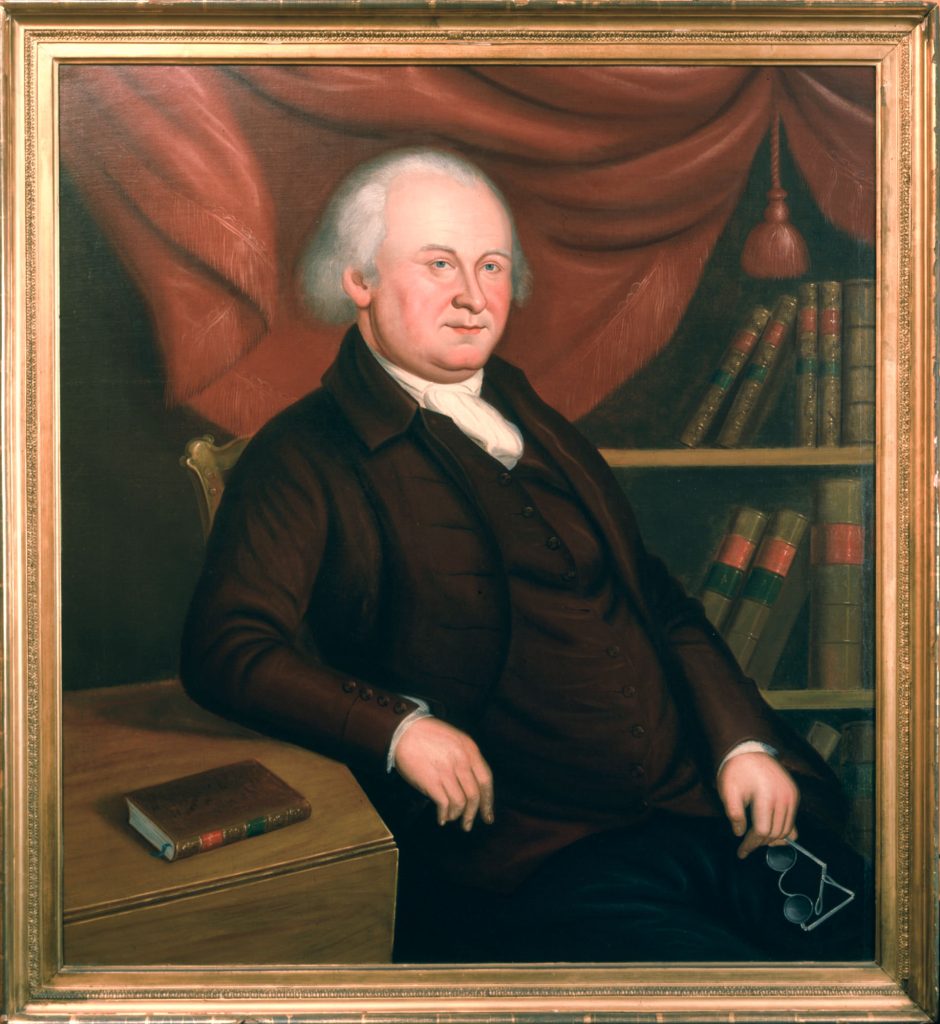Born and raised in the Prussian town of Langendorf (Upper Silesia), Barnard Gratz arrived in America in 1754 at the age of seventeen. Even at this young age, he had already acquired several years of business experience under the guidance of Solomon Henry, an older cousin living in London. With the restrictions imposed on Jewish economic activities under Frederick II, the orphaned Gratz, like other Prussian Jews seeking advancement, had had little choice but to leave Prussia to seek his place elsewhere in the world. In Philadelphia, Gratz was soon employed by David Franks, a business associate of Solomon Henry. While working as a salaried employee of the Franks firm, Gratz also began investing in ventures of his own. In four years, he had acquired enough capital to execute a plan to set himself up in trade under his own name.
In 1758, Barnard Gratz wrote to Henry to invite his younger brother Michael, then 18 but wandering and unfocused, to join him in Philadelphia. Barnard suggested Michael could take over his place working for Franks and hoped that it would be the making of Michael’s career. Michael arrived in Philadelphia shortly thereafter, and soon joined Barnard in a variety of joint and independent ventures. By 1765, Michael too had left the Franks firm, marking the establishment of successful familial partnership of the two Gratz brothers. Their import/export trade would encompass coastal trade to the Caribbean as well as overland trade to the Western frontier of North America and, eventually, land speculation in the unsettled territories of Pennsylvania, Ohio, Kentucky and Indiana, in particular along the Ohio River
In December of 1760, Barnard Gratz, then 22, married 29 year old Richea Myers-Cohen of New York. Their first child, a daughter named Fanny, died in infancy. Richea’s second pregnancy would result in another daughter, Rachel, who survived to adulthood and married Solomon Etting. Ironically, Rachel’s birth would ultimately result in her mother’s death, as Richea succumbed to complications from childbirth. Barnard never remarried, and relied on Michael’s family to help raise his only child.
Barnard played an active role in the ritual life of Philadelphia’s nascent Jewish community, obtaining a Torah and prayerbooks from London for use of the as yet unnamed congregation. When, in March 1782, it was determined to formally constitute the congregation as Kahal Kadosh Mikve Israel, Gratz was prominent among the group of founders and was elected one of five assistants to Mikve Israel’s first parnas, Isaac Moses. When the new synagogue structure was dedicated that September, Barnard Gratz was given the honor of carrying the congregation’s Torah into the new sanctuary.
The advent of the Revolutionary War in 1776, brought the Gratz brothers into the limelight of politics. They had already declared themselves supporters of independence when they signed Philadelphia’s Non-Importation Agreement in 1769. During the war, they provided supplies to American forces and, during the brief British occupation of Philadelphia, decamped to Lancaster. When Pennsylvania enacted a constitution limiting office holding to Christians, Barnard Gratz was, along Hyam Salomon, Gershom Mendes Seixas, Jonas Phillips and Simon Nathan, among the signers of a petition to the state legislature protesting that provision, which was eventually removed in 1790.
